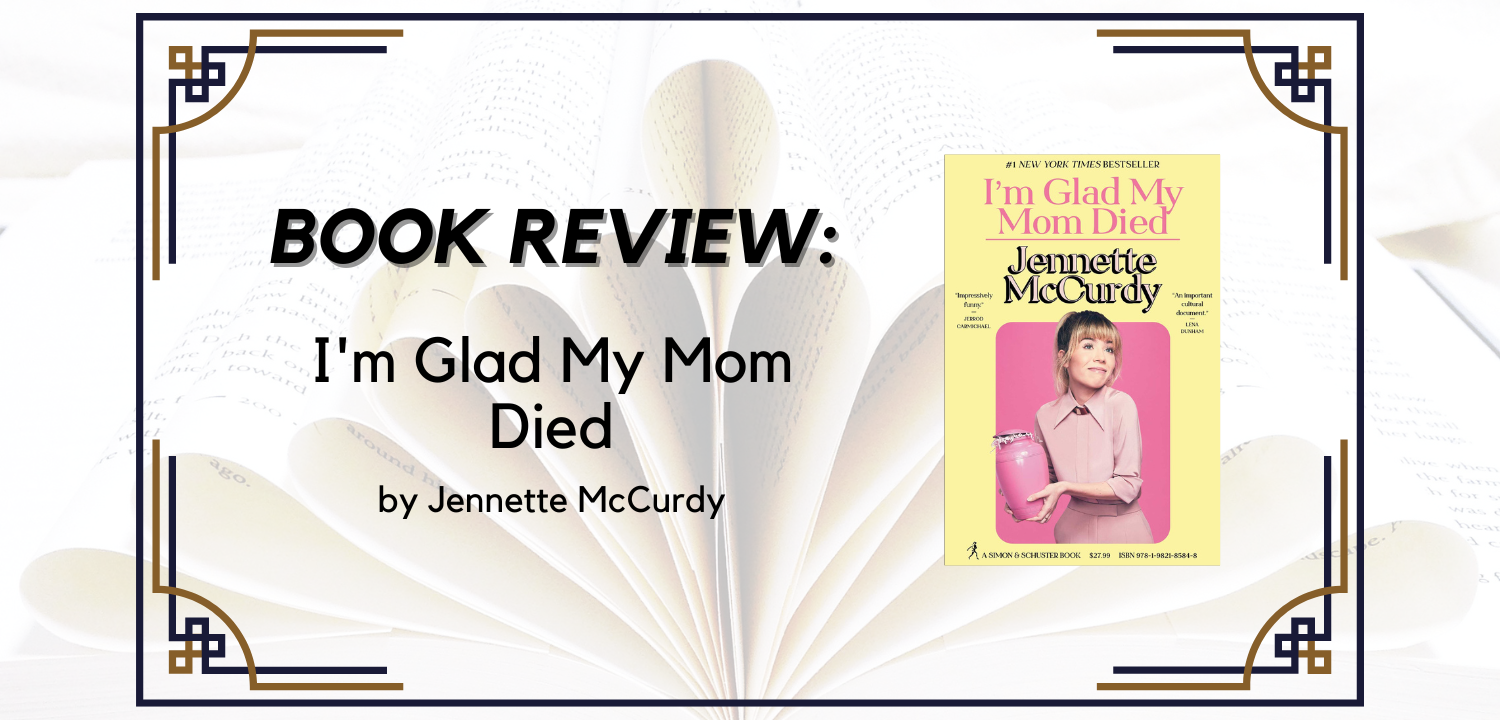I’m Glad My Mom Died
The biggest pull this book had on me was its title – how controversial is it to say you’re glad your mom died? And then I saw who wrote it and became even more intrigued. I knew of Jennette McCurdy through iCarly, a show my sister and I watched on Nickelodeon when we were younger. I always liked Jennette’s character, Sam – she was rambunctious, loved food, and was often a great source of comic relief. On the outside, it would seem that Jennette had it all. Who wouldn’t love to be famous and be a co-star on a popular show? It wasn’t until I read her memoir that I learned she actually hated acting, and it was her mom’s dream, not hers.
“I take a longer look at the words on her headstone. Brave, kind, loyal, sweet, loving, graceful, strong, thoughtful, funny, genuine, hopeful, playful, insightful, and on and on… Was she, though? Was she any of those things? The words make me angry. I can’t look at them any longer. Why do we romanticize the dead? Why can’t we be honest about them?”
I’m Glad My Mom Died is a raw, honest, and vulnerable look into Jennette’s life and experiences as a rising child actor. Contrary to what people may think Jennette feels about her mom, Jennette loved her deeply. Deb was her idol and Jennette adored her. As a child, Jennette did everything she could to please her mother. They didn’t come from a wealthy family and Deb saw acting as a way out for them, a solution to their financial problems. Except acting was something Deb always wanted to do, not Jennette. But Jennette starts acting to make her mother happy.
Growing up Jennette always believed her mom would do what was best for her but that unwavering trust takes a heartbreaking turn when at 11 years old, Deb encourages Jennette to restrict her calories to stay a certain size. This starts Jennette’s path to disordered eating, and later on anorexia, which then turned into bulimia in her adult years.
In her book, Jennette talks about the complicated feelings she had about her mom – how she loved her but felt frustrated and suffocated by her, yet feeling guilty any time she had negative thoughts about her. The book is split in Before and After chapters: Before her Mom died and her life after. When Jennette seeks help and starts going to therapy after her mom’s death, her therapist points out that Deb had been abusive in enabling her anorexia. This absolutely shocks and crushes Jennette and she responds with anger and denial. I felt her pain when it finally hit her that her mom, her idol, was not always the loving mother Jennette thought she was.
There is so much I can talk about this book, but I don’t want to give away more than I already have. Jennette’s vulnerability in not only sharing her life with her mother, but also her life after was incredibly poignant. Jennette not only struggled with eating disorders, but also alcoholism as she tried to find ways to cope. Her healing journey is painful, full of setbacks and denial, but there are also moments of victory and continued progress. I wish Jennette nothing but the best in her journey and I’m glad she’s now able to take steps to live for herself. If you get a chance, listen to the audiobook. Jennette narrates it so well and it just feels like the best way to read it.
I’m glad this book exists. Non-physical parental abuse is something I personally don’t see talked about, but it’s so important to shed light on it. It is harder to spot and easier to happen and while this book isn’t necessarily a resource for those who may be going through something similar, representation is a step in the right direction.
Note: Please be aware of some trigger warnings! As I mentioned there are chapters dealing with eating disorders and alcoholism but also parental abuse (verbal, manipulation), and sex.











Leave a Comment